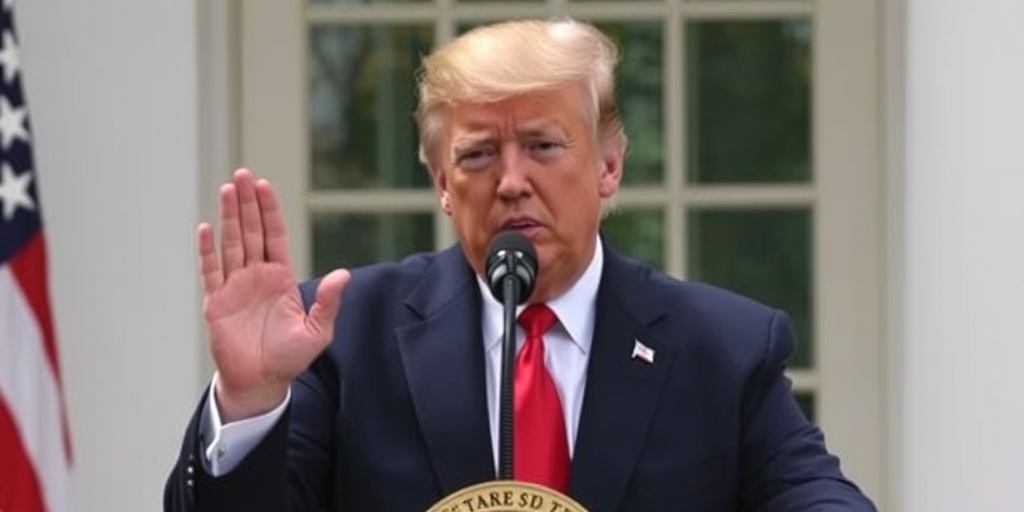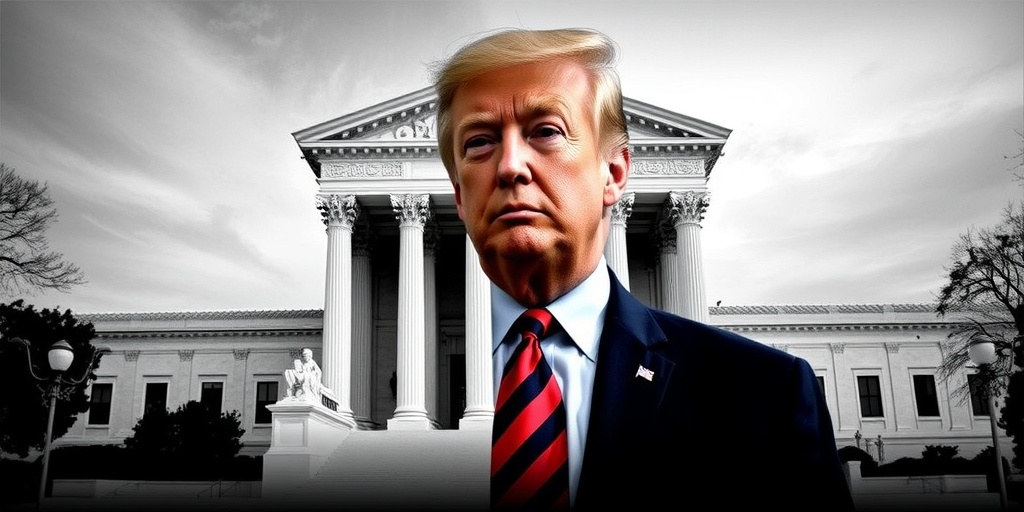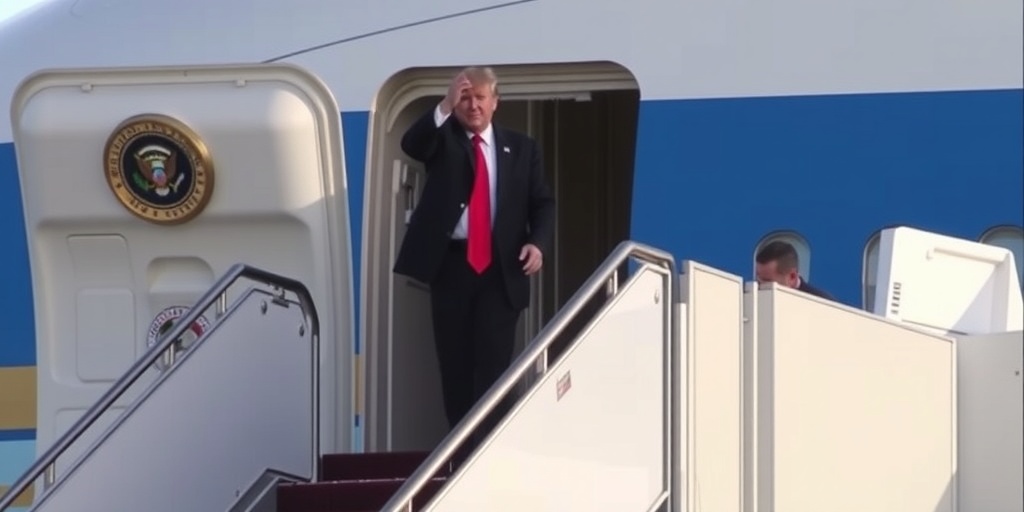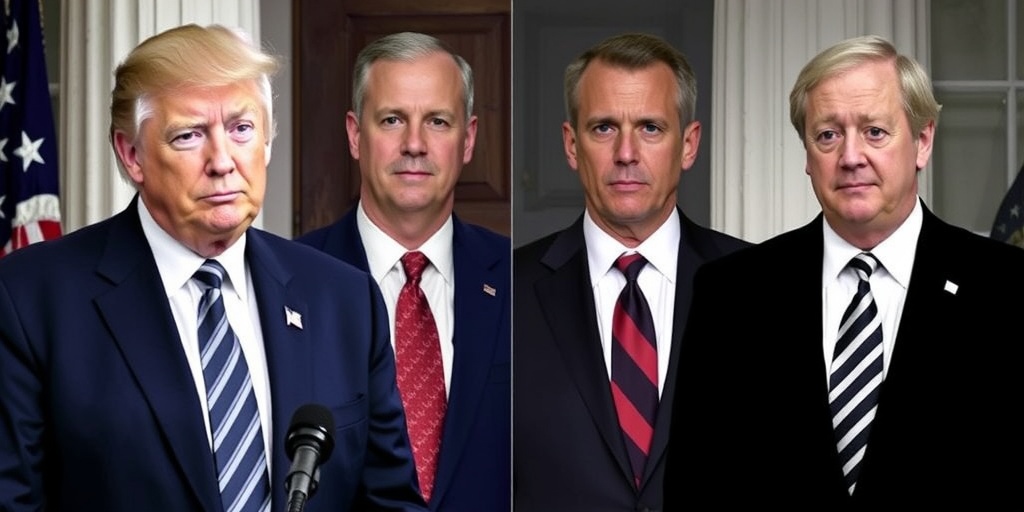Now Reading: Trump Administration Asks Defunded Aid Programs to Justify Their Value
-
01
Trump Administration Asks Defunded Aid Programs to Justify Their Value
Trump Administration Asks Defunded Aid Programs to Justify Their Value
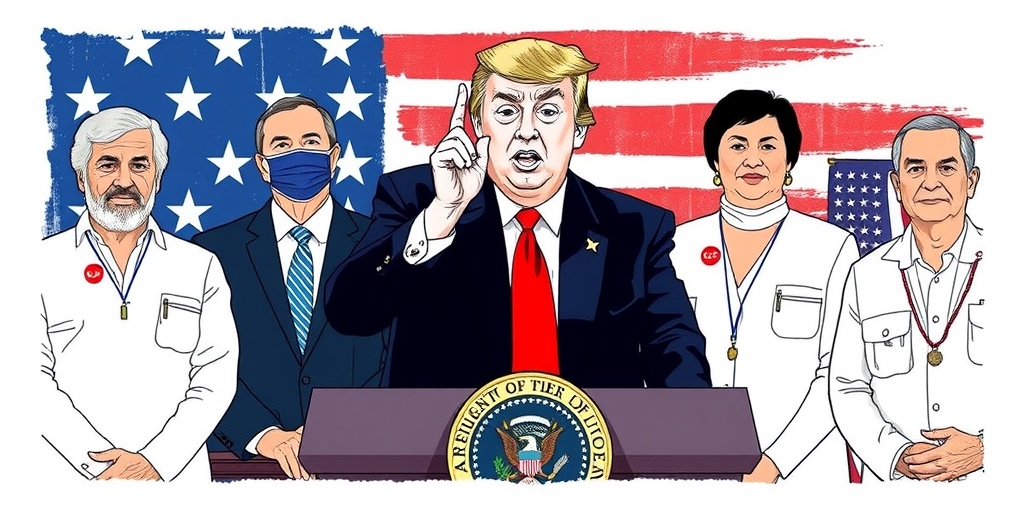
Title: Confusion and Chaos Follow U.S. Foreign Aid Review Amid Terminations and New Questionnaires
In a dramatic turn of events, the Trump administration has recently terminated almost all foreign aid contracts, declaring that its review of various aid programs has come to a close, resulting in the elimination of those deemed not aligned with national interests. This decision, announced in a filing to a federal court last week, has left many organizations bewildered and struggling to find clarity on their future.
As part of this ongoing upheaval, numerous aid programs have started receiving a new questionnaire, requiring them to outline what their projects accomplish and how these initiatives align with the current administration’s national priorities. Titled the "Foreign Assistance Review," the survey, as reported by The New York Times, has raised eyebrows among grant recipients, particularly since many programs have already downsized their operations or ceased them entirely due to the lack of federal funding. Organizations had been put on notice as early as January 20 when President Trump issued an executive order putting all aid on hold pending a thorough review.
Compounding the confusion, the deadlines for submitting responses to these questionnaires range from March 7 to March 17, but for many organizations, there are no longer any employees available to complete them. Personnel have been laid off, and programs shuttered, as financial support from the federal government has all but vanished through this prolonged review process.
The turmoil, which has persisted for roughly eight weeks, began with a stop-work order affecting employees and contractors of the United States Agency for International Development (USAID) and a freeze on a substantial amount of funds, including reimbursements for prior expenditures totaling hundreds of millions of dollars. This period was characterized by a series of abrupt policy decisions, including waivers allowing certain organizations to continue providing critical services such as medical aid and food assistance, only to later experience the termination of over 5,000 projects.
Despite the chaos, some organizations were recently informed that their programs had been "fully restored," while others learned that their restoration hinged on short-term waivers set to expire next month. However, many have yet to see any previously owed funds reinstated. In a recent Supreme Court ruling, the administration was mandated to adhere to a lower court’s order to release frozen foreign aid, but the damage was already done; countless projects had faced financial ruin due to the extended period of uncertainty.
Compounding the already complex situation, the new questionnaire has been distributed to various organizations prior to the Supreme Court’s ruling. The State Department has not commented on the ongoing turmoil or the new data request.
The confusion left many aid organizations questioning the logic behind the U.S. government’s actions. Christy Delafield, a spokeswoman for FHI 360—an organization dedicated to health and humanitarian aid across 60 nations—was particularly perplexed. "This whole process is baffling: first we were asked to restart lifesaving programs, but we haven’t been given money to do it, and now we’re being asked to review programs which were, in theory, previously reviewed and already terminated," she stated.
The newly issued surveys contain over 25 questions aimed at evaluating how each recipient’s projects relate to U.S. national interests. Additionally, the questionnaires reference some of the administration’s primary political objectives, including combating illegal immigration and opposing "gender ideology." Participating organizations are allowed to respond to each question in 150 characters (approximately 35 words), with a point system awarding from 1 to 5 points based on the alignment of their projects with stated goals.
Among the provocative questions presented in the survey are inquiries concerning the involvement of diversity, equity, and inclusion (DEI) elements in projects, confirmation of whether they are climate-focused, and their direct impacts on countering perceived malign influences, particularly from China. There are also specific questions about how projects are addressing the flow of fentanyl and other synthetic drugs into the United States.
Peter Marocco, a State Department official who has played a key role in overseeing the cuts to USAID, indicated in a sworn statement that their review of existing aid obligations had been completed, affirming that Secretary of State Marco Rubio made final decisions regarding each award. However, on March 5, the government communicated that it had "nearly completed" its review of existing contracts and grants, all while claiming substantial compliance with court orders regarding frozen funds.
Legal experts have expressed concern about the administration’s handling of these reviews. David A. Super, a law professor at Georgetown University, noted that by stating that an individualized review had occurred without solid evidence, officials may be exposing themselves to legal repercussions, including contempt of court. He emphasized that the administration’s request for additional information through the survey indicates a perceived necessity that contradicts earlier claims of thorough reviews.
The revised questionnaire was disseminated to projects across 32 USAID divisions, each with varying focuses, including global health, food security, and governance. As the situation continues to unfold, organizations remain in limbo, grappling with the uncertainty of their futures while also providing critical services to those in need amidst an ever-changing political landscape.
Stay Informed With the Latest & Most Important News
Previous Post
Next Post
-
 01New technology breakthrough has everyone talking right now
01New technology breakthrough has everyone talking right now -
 02Unbelievable life hack everyone needs to try today
02Unbelievable life hack everyone needs to try today -
 03Fascinating discovery found buried deep beneath the ocean
03Fascinating discovery found buried deep beneath the ocean -
 04Man invents genius device that solves everyday problems
04Man invents genius device that solves everyday problems -
 05Shocking discovery that changes what we know forever
05Shocking discovery that changes what we know forever -
 06Internet goes wild over celebrity’s unexpected fashion choice
06Internet goes wild over celebrity’s unexpected fashion choice -
 07Rare animal sighting stuns scientists and wildlife lovers
07Rare animal sighting stuns scientists and wildlife lovers













